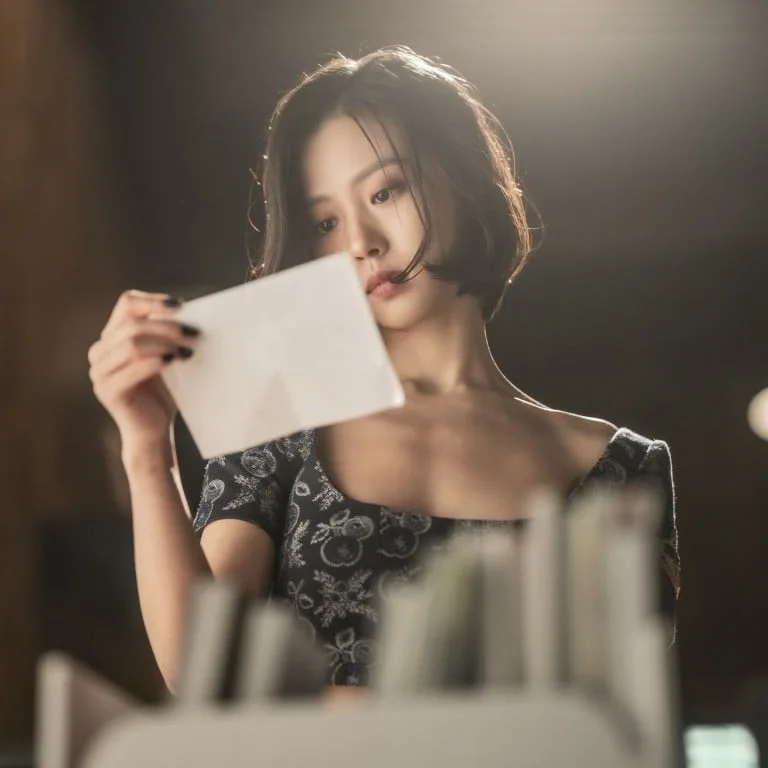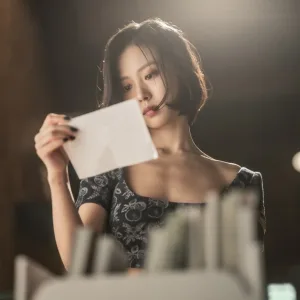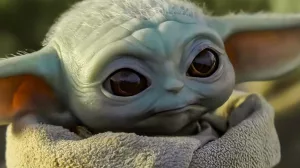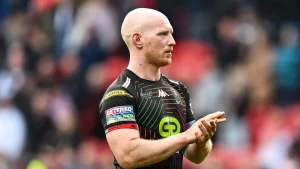
Review of Netflix K-Drama The Frog: A Stylish Mystery Favoring Philosophy Over Reason
Netflix’s latest K-drama offering, “The Frog,” emerges as a visually striking and intellectually stimulating mystery that delves deeply into philosophical themes. Created by acclaimed writer-director Min-jun Kim, the series blends atmospheric storytelling with existential musings, presenting a unique take on the genre that prioritizes philosophical inquiry over conventional narrative logic.
Set in a picturesque yet eerie small town, “The Frog” revolves around a series of cryptic murders that unsettle the community. The plot follows Joon-ho, a disillusioned detective, and Mi-rae, a young philosophy professor, as they navigate a maze of enigmatic clues and unsettling occurrences. The series excels in crafting an aura of mystery and intrigue, driven by its distinctive visual style and the thoughtful interplay of its central themes.
One of the most striking elements of The Frog is its visual presentation. The series is marked by its moody cinematography, which employs a muted color palette and striking contrast to evoke a sense of foreboding. The haunting soundtrack further amplifies the tension, creating a rich auditory landscape that enhances the overall atmosphere. The town itself, with its labyrinthine streets and fog-laden landscapes, becomes a character in its own right, reflecting the internal chaos of the characters.
However, The Frog is not merely a feast for the eyes. The series distinguishes itself through its intellectual ambition, favoring philosophical exploration over traditional mystery-solving. Rather than focusing solely on the mechanics of the murders, the narrative delves into existential questions about the nature of reality, identity, and morality. Joon-ho and Mi-rae’s investigation becomes a journey into the human psyche, exploring how personal beliefs and perceptions shape one’s understanding of truth.
The dialogue in The Frog is dense with philosophical references and musings. Conversations between characters often drift into discussions about the nature of existence, free will, and the essence of human nature. While this approach adds depth to the story, it also requires viewers to engage actively with the material. The series does not offer easy answers or straightforward resolutions, instead encouraging viewers to ponder the larger questions it raises.
Character development in The Frog is both intricate and layered. Joon-ho’s personal struggles and Mi-rae’s intellectual pursuits are interwoven with the central mystery, providing a deeper understanding of their motivations and actions. Their interactions are marked by a palpable tension, as they grapple with their own philosophical beliefs while trying to make sense of the unfolding events. This interplay adds complexity to the narrative, making the characters’ journey as compelling as the mystery itself.
In terms of pacing, The Frog can be deliberately slow, with significant emphasis on introspection and dialogue. This might be a drawback for viewers expecting a more traditional, fast-paced thriller. However, for those willing to invest in the series’ philosophical undertones, the slower pace allows for a more nuanced exploration of its themes.
Overall, The Frog is a refreshing addition to the K-drama landscape, offering a distinctive blend of mystery and philosophical inquiry. Its stylish presentation and thought-provoking content make it a standout series that challenges conventional genre expectations. While it may not appeal to everyone due to its focus on existential questions over plot-driven action, it provides a unique viewing experience for those interested in exploring the deeper aspects of human nature and reality.







